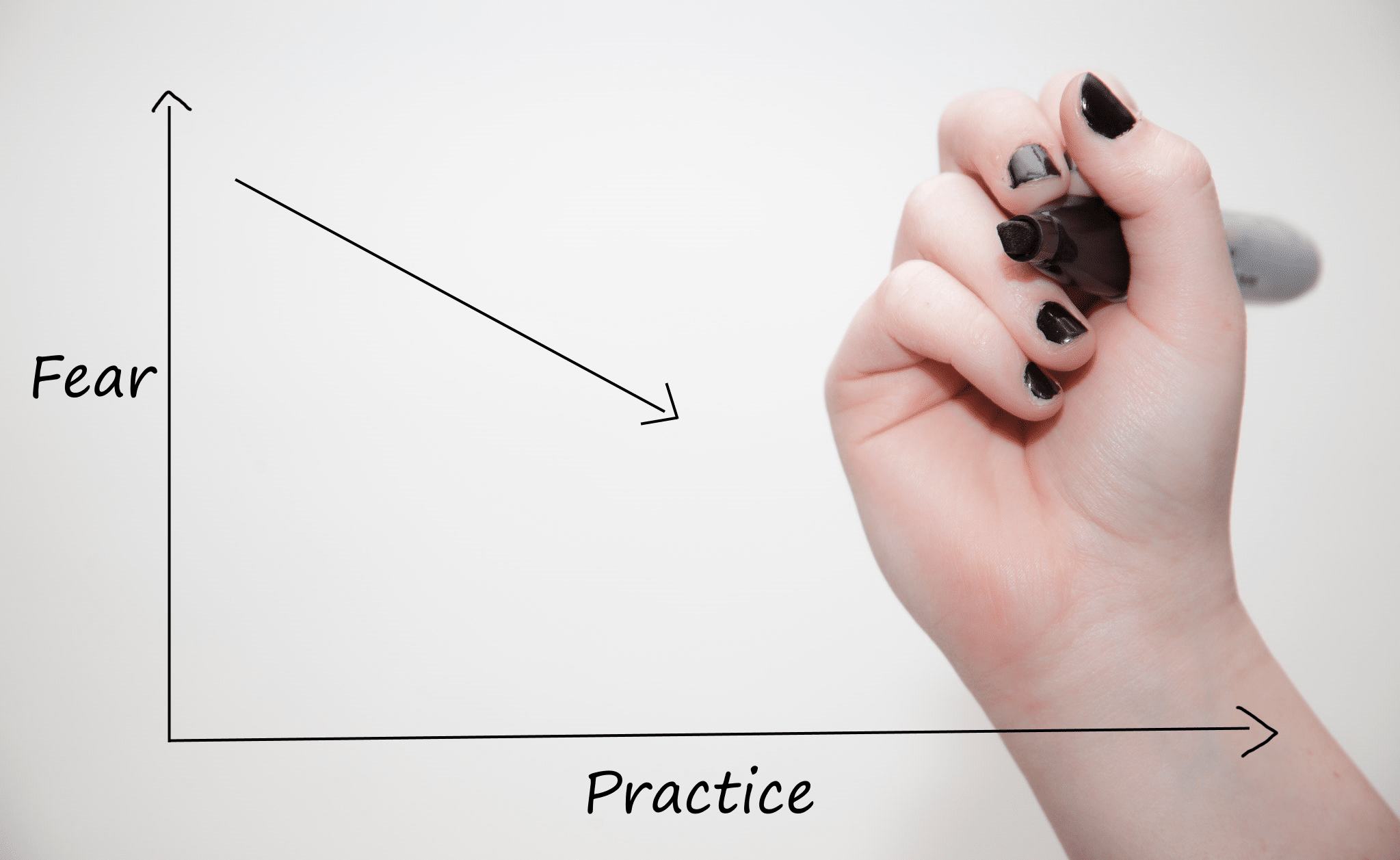Your cart is currently empty!
Exposure therapy consists of exposing yourself to the situations you fear, gradually. This way you become used to them and learn how to deal with them. This is the reason our software, Virtual Orator, can be so effective. It helps you to face a scary situation (public speaking) in the safe, controlled environment of Virtual Reality.
Researched since the sixties, exposure therapy has proven effective in many areas, social anxiety included. These last studies lead to the conclusion that facing your fears, in general, will make you slowly desensitized to the fear of rejection and embarrassment.
Exposure therapy uncomplicated
One of the most important things to know about exposure therapy is that your fear will not disappear. You will learn how to face it, instead of avoiding it.
We live in a highly competitive world where you only reach your goals if you can leave your comfort zone.

While you remain in your comfort zone, there is no room for growth. If you try gradually to leave it towards the situations that make you feel anxious today, you’ll be educating yourself to adapt. Like training a muscle, you have to keep working at it to see gains.
Simple self-applied Exposure therapy
To make a plan for yourself is simpler than it may seem; You just need a bit of self-control and willpower. Focus on your fear and follow through with the next steps.
Make a list
Make a list of situations that trigger your anxiety. Don’t worry about the level of anxiety they might give you. For now, just write down whatever comes to your mind.
Give your items a hierarchy
Look at what you wrote and organize them from the ones that give you less anxiety to the ones that are the larger sources of anxiety.
Worst case scenario
Look at your new organized list. Take a moment to think about what could be the worst thing you’d face in those situations. Why is that the worst? How likely is it to happen? What could you do to prevent it? What’s the best way to deal with it, if it really happens?
Try to answer those questions carefully and realistically. If you need help, consider Tim Ferriss’ Fear-Setting Exercise describe here or in his TED talk. Feeling prepared help you to take the first step.
Start working on the first item of your list
Now that you have everything sorted, you need to start working on it. Focus on one item at a time. Work on it until you’re able to do it a couple of times. Then, go to the next one. Try to work on your list a bit every day for consistency.
Example Plan for Public Speaking
Preparing a plan for exposure is very personal. We all have different fears, and the same situation gives different levels of anxiety for each one of us. However, I will demonstrate with a simple list to help you start.
Remember, this is only an example. If some situation is not stressful for you, cut it out. If you feel that the steps are too big, and you can’t do it, add more steps in between. The important thing is to start small and gradually go for situations that you rate as creating greater anxiety.
Planning, will power and consistency
Exposure therapy works on the root cause of the problem to make you feel more comfortable within uncomfortable situations.
Make a plan very carefully, and work on it, without giving up. You can make changes along the way if you think you were going to fast or too slow. Do something every day, even if you can’t go on to the next step on the list. Repeat the previous steps on the list to keep pushing you forward.
Avoid workarounds and safety nets. They are conditional and, in the long term, will become problems. One example is to memorize your speech. You may have an excellent memory required to do that; for now. The day will come, when for some reason you can’t memorize it, and you’re back at square one.
Start working today and keep improving towards your goals. By conquering each step, you’ll be raising your self-esteem and confidence, improving your skills and moving towards new possibilities in your career and life.
Cátia is a psychologist who is passionate about helping children develop and train social skills.



Leave a Reply